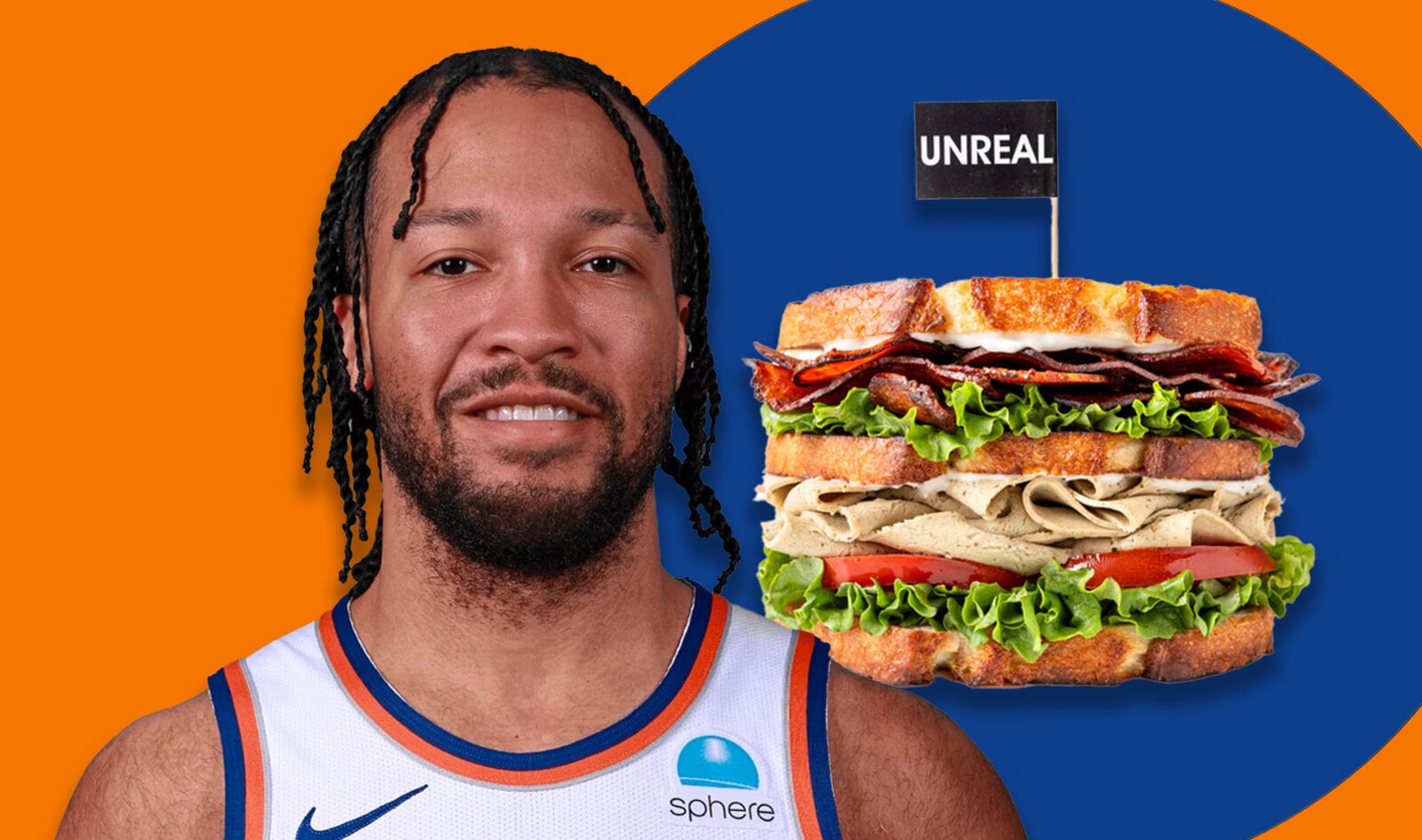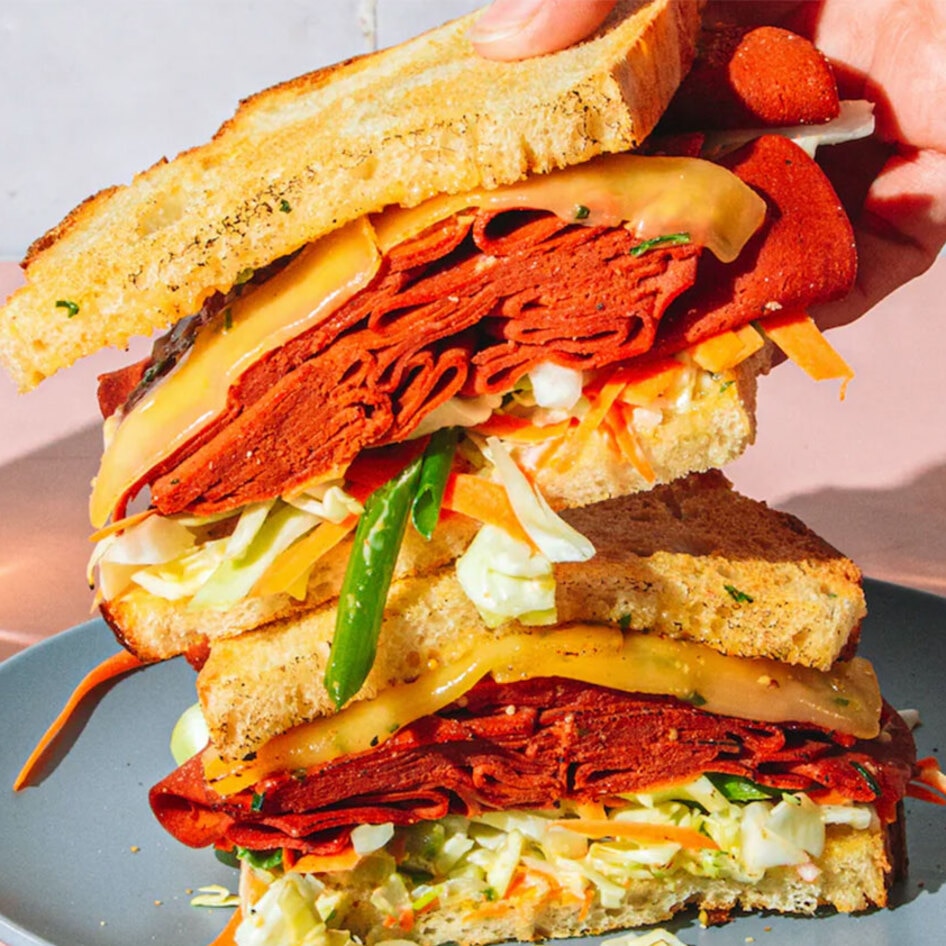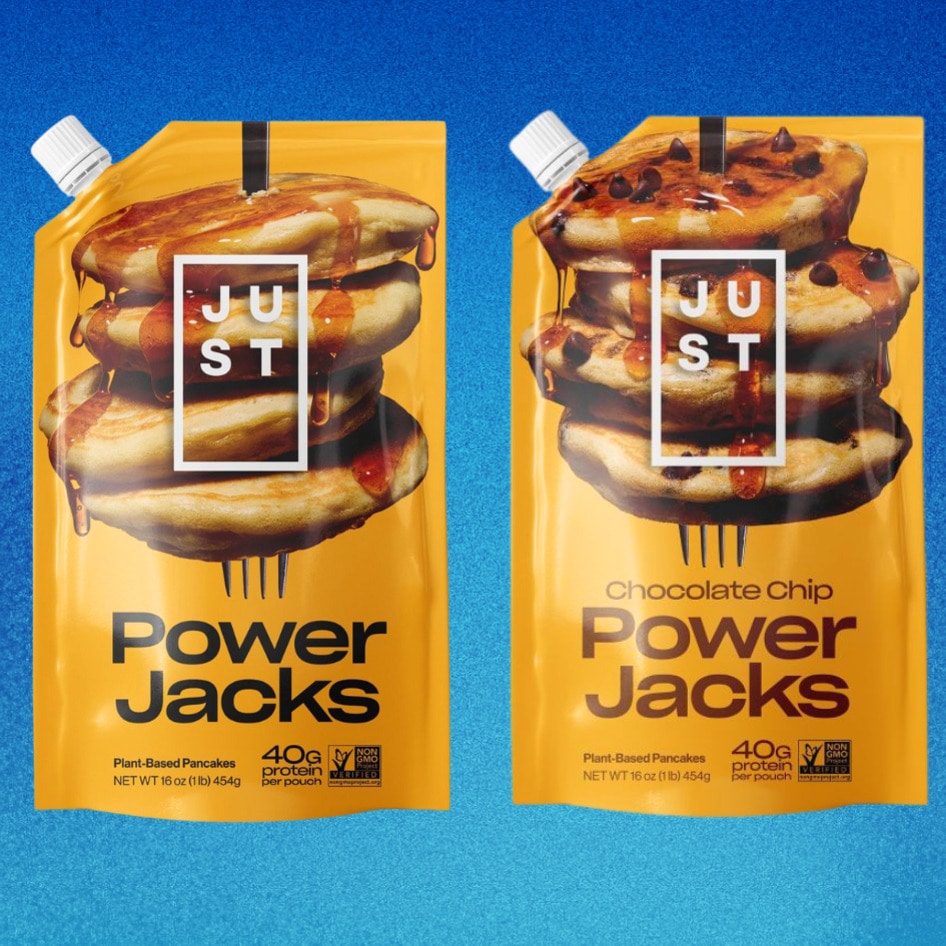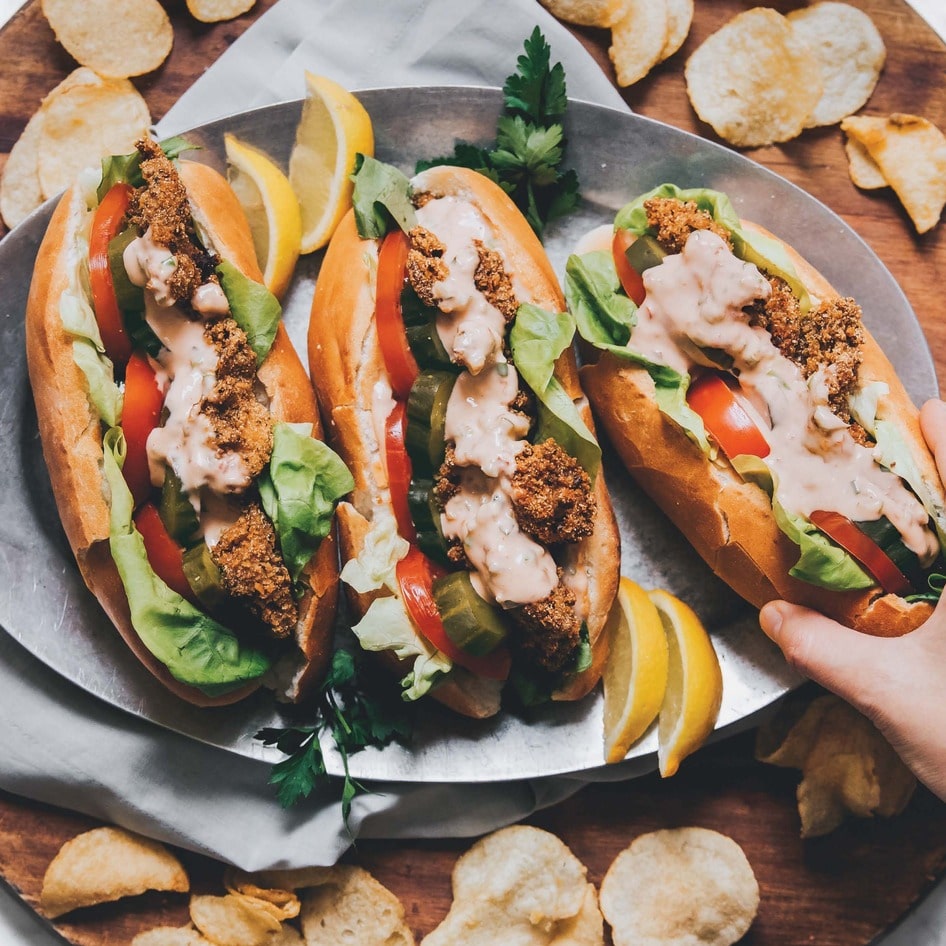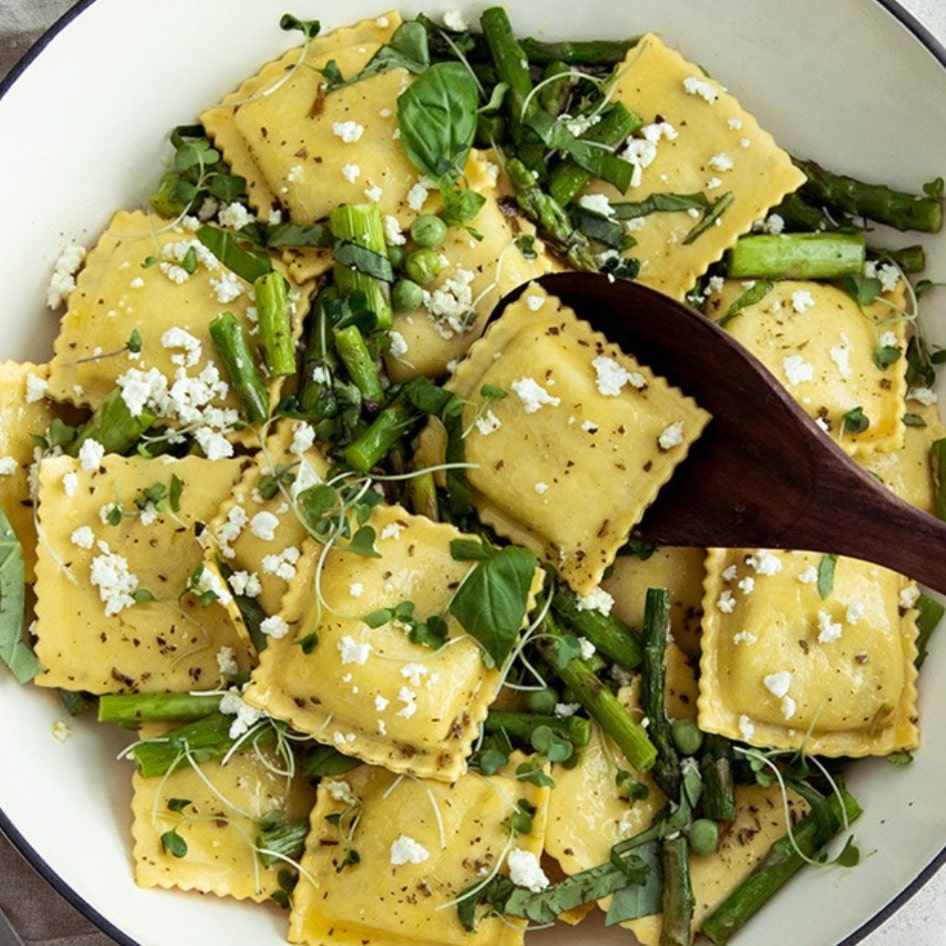Professional basketball player Jalen Brunson of the New York Knicks is leaning into a plant-based diet to give himself an advantage on and off the court.
“I’m not fully plant-based, but I’ve introduced a lot of plant-based things into my diet. I try not to do the same thing every day for breakfast,” Brunson told GQ in a recent interview. “Bacon fell out. I haven’t eaten red meat since my freshman year of college. Then after that, I took out pork.”
Brunson says his plant-forward diet has been key to helping him feel more energetic, particularly in the morning. The 27-year-old athlete is a big fan of breakfast, which he tries to eat nearly every day. Brunson loves to try new foods but admits that he still has cravings for certain foods.
“I miss bacon, though; I’m not going to lie to you,” he said.
What’s wrong with traditional bacon?
Traditional animal-derived bacon and other processed meats come with a slew of health concerns, which are supported by substantial research and official classifications by prominent health organizations.
The World Health Organization’s International Agency for Research on Cancer (IARC) classified processed meats, including bacon, as a Group 1 carcinogen. This classification puts bacon and other processed meats in the same category as other known carcinogens such as alcohol, asbestos, and tobacco.
 Brigitte Theriault
Brigitte Theriault
Beyond cancer, high consumption of red and processed meats is also associated with an increased risk of other chronic diseases. These include coronary heart disease, stroke, and type II diabetes. Multiple studies from institutions such as the Harvard T.H. Chan School of Public Health have found higher rates of total mortality with higher intake of red or processed meat.
The global burden of these health impacts is substantial, with diets high in processed meat accounting for about 644,000 deaths worldwide annually.
The pork industry is also the subject of documentary The Smell of Money, which aims to expose how Smithfield’s North Carolina hog operation has affected nearby communities, who are constantly exposed to untreated waste, leading to respiratory illnesses and other health issues.
Luckily, three new vegan bacon brands are on the way to make for a better breakfast for Brunson, and the rest of us.
1 Unreal Bacon
Founded by Jenny Goldfarb, Unreal Deli is best known for its plant-based corned beef, roasted turkey, and steak deli slices.
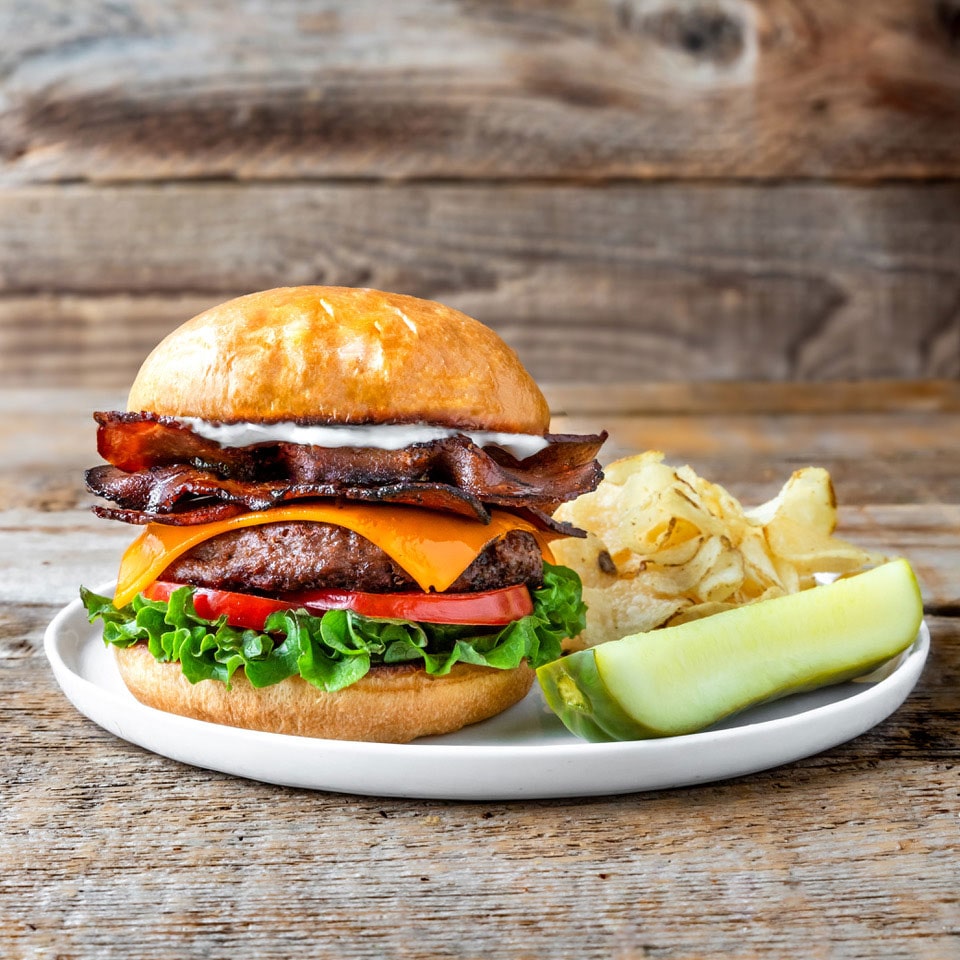
Unreal Deli
This year, the brand—which counts Shark Tank’s Mark Cuban as an investor—is breaking into a new category with Unreal Bacon, its take on pork bacon that’s perfect for BLTs and more.
“We’ve been developing Unreal Bacon for two years, after tremendous demand from the marketplace for a bacon made with real vegetables,” Goldfarb tells VegNews.
The new vegan bacon is made with butternut squash and fava beans, and comes without the downsides of pork bacon, including half of the sodium and saturated fat. Since Unreal Bacon does not contain animal ingredients, its cholesterol content is zero.
While many avoid pork bacon for ethical, health, and religious reasons, Goldfarb developed Unreal’s version to appeal to all.
“We’ve made sure to make Unreal Bacon both kosher and halal, far healthier in every category than traditional bacon and leaving out the animal to make it hyper inclusive for everyone,” Goldfarb says.
The new vegan bacon is hitting Whole Foods Markets now with an expanded rollout planned for Sprouts, Kroger, Albertsons, and Wegmans.
2 Meat the Mushroom
Another Shark Tank alum, Meat the Mushroom, is also bringing its vegan bacon to consumers.
This Baltimore-based startup received a notable investment of $150,000 from “sharks” Kevin O’Leary and Lori Greiner, who took a 33.3-percent stake in the company.
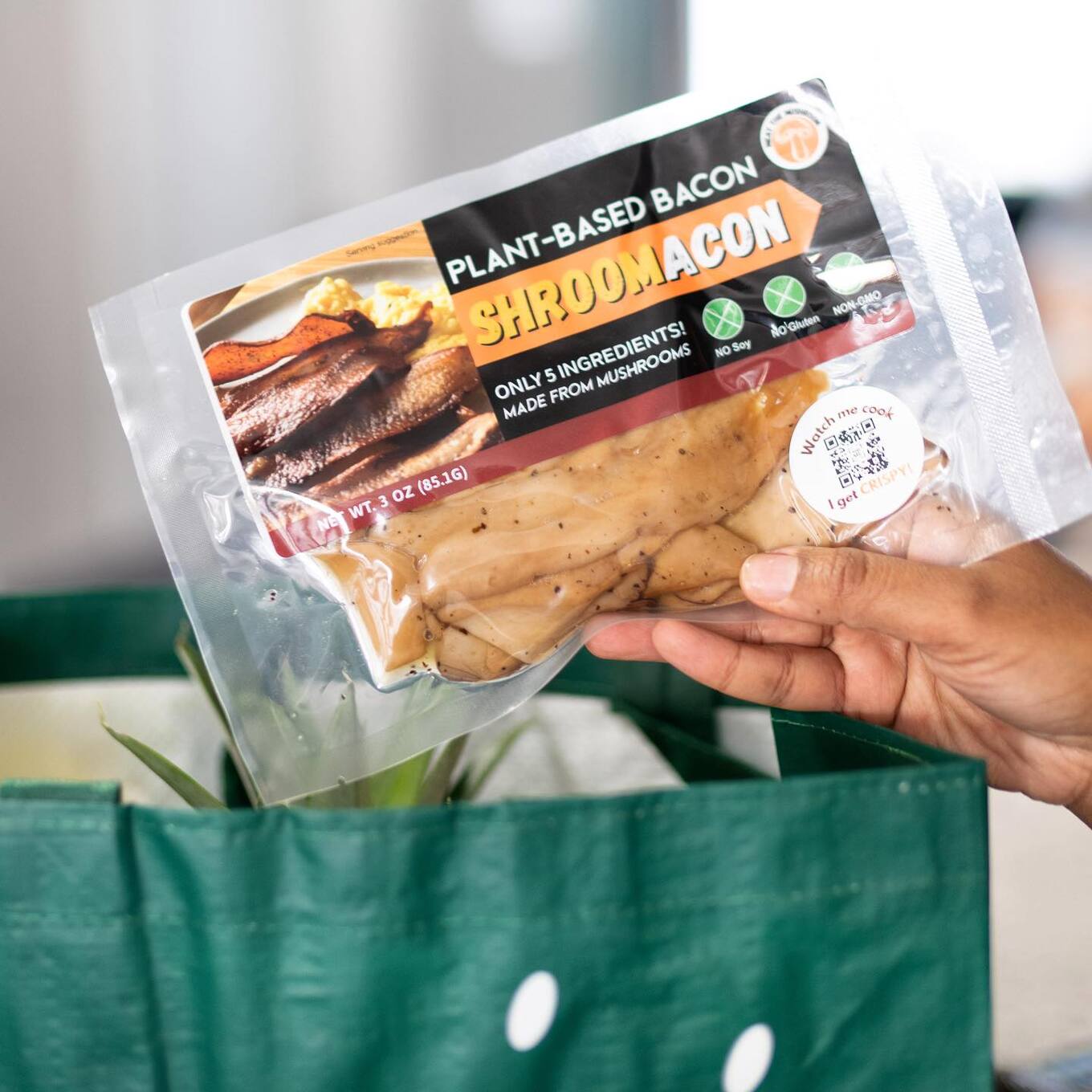 Meat the Mushroom
Meat the Mushroom
Founders Marvin Montague Jr. and Aleah Rae were driven to create Meat the Mushroom in 2021 due to personal health challenges. The startup’s Shroomacon is made from long strips of king oyster mushrooms, along with olive oil, natural smoke flavor, salt, and black pepper.
Currently, the vegan bacon is available in select markets across the United States for nationwide shipping through its website. After snagging its investment on Shark Tank, Meet the Mushroom has been gearing up for growth, with plans to double its team size and enhance production capabilities.
3 MyForest Foods
MyForest Foods, another brand that embraces the power of fungi, just expanded its MyBacon to the Northeastern region of Whole Foods Market. In total, more than 350 stores across New York City, New Jersey, Connecticut, Pennsylvania, and Maryland now offer the company’s innovative bacon—which has been consistently selling out since its 2020 launch.
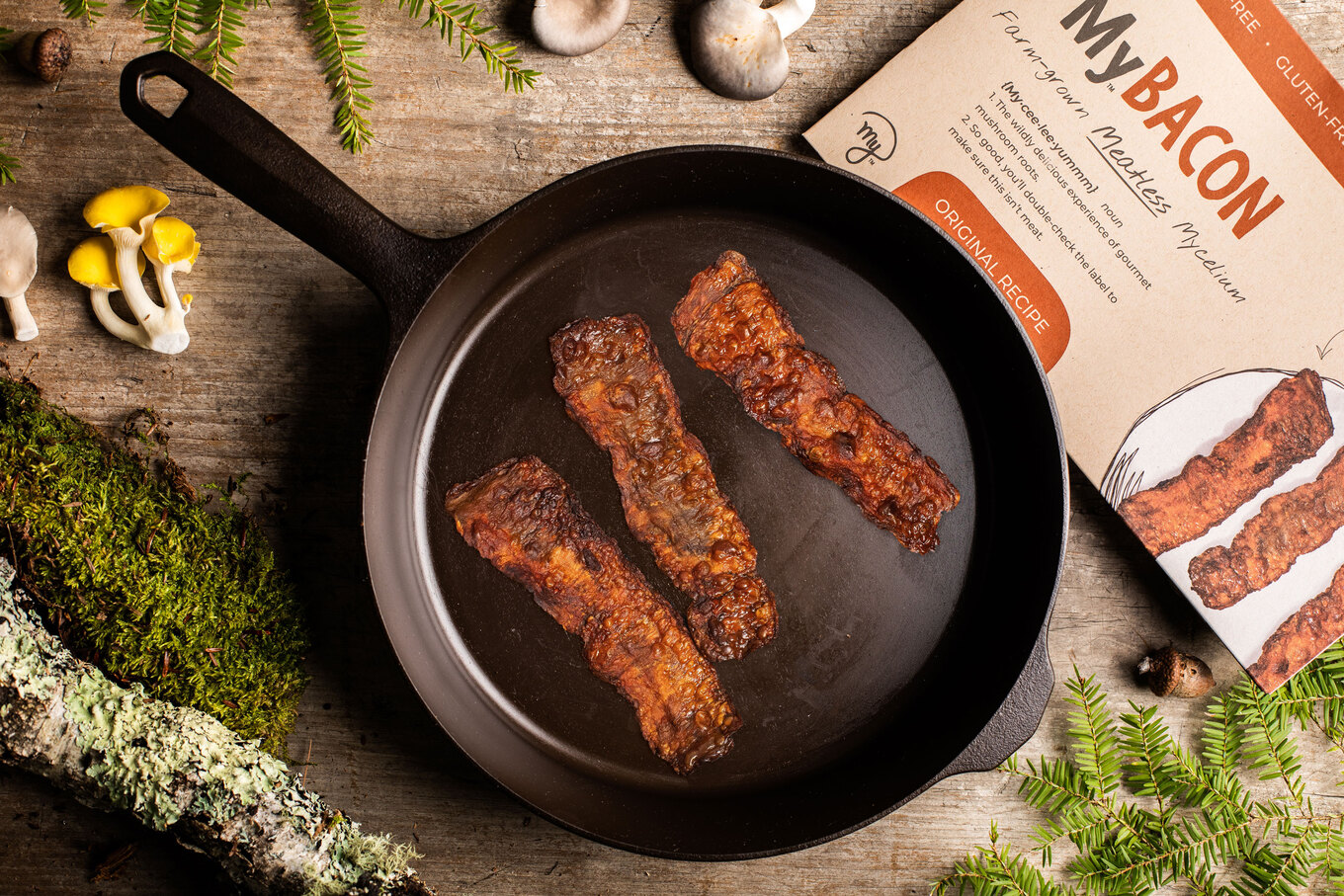 MyForest Foods
MyForest Foods
What sets MyBacon apart is its use of organic oyster mushroom mycelium, the root structure of mushrooms. This ingredient is cultivated using MyForest Foods’ AirMycelium technology, which focuses on growing the mushroom’s roots in a controlled environment—a more eco-friendly approach than raising pigs for pork bacon.
Co-founder Eben Bayer explained that it took trial and error to dial in the exact process but, together with its partner Whitecrest Innovations in Canada, MyForest is looking to double its production of vegan bacon in 2024.
“This journey has been about so much more than launching a product,” Sarah-Marie Cole, Chief Marketing Officer of MyForest Foods, said in a statement. “This is the domestication of an entirely new crop: AirMycelium.”
“It’s a crop that offers a delicious, whole-cut, farm-to-table experience,” Cole said. “We can’t wait to share it with long-time fans and new consumers alike.”
These three new vegan bacon products are joining existing products from the likes of Lightlife, Umaro Foods, Prime Roots, Tofurky, and more. This means that everyone who misses bacon for whatever reason will have even more choice when it comes to better-for-you bacon.
For the latest vegan news, read:
JUMP TO ... Latest News | Recipes | Guides | Health | Subscribe

